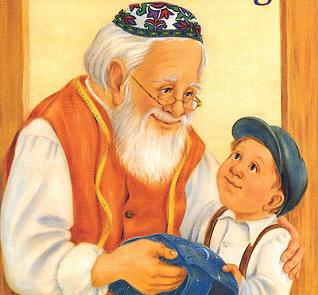Parshat Vayishlach: Lemme Tell You a Story
We are presently in the midst of the first of the five books of the Chumash, Sefer Bereshit – The Book of Genesis. The Torah is an instruction manual for life. It is referred to as Torat Chaim – Instructions for Living. It is noteworthy how this manual begins. Not with mitzvot/commandments of Do’s and Don’ts, for there are only three in the entire Book of Bereshit. And not with some discourse on theology or philosophy which only arises in much later works of Judaism. No, Bereshit is filled with stories.
The entire work is pretty much made up of stories. Of Adam and Eve, Cain and Abel, Noah and the Flood and then of the patriarchs and matriarchs Avraham, Yitzchak, Yaakov; Sara, Rivka, Rachel and Leah, and finally of Joseph and his brothers.
Rabbi Sacks zt”l points out that stories have a universal element to them and appeal to people of all religions, walks-of-life and age. A child in kindergarten will learn about the stories in Bereshit as will a Talmud Chacham/scholar who will study the commentaries and perhaps come up with his own novel ideas of the events therein.
But most importantly, stories have a way of sticking in people’s minds. Of engaging the reader or listener and having a deep and everlasting impression on them. I was reminded of the impact stories have when my youngest daughter, Batsheva was given a school assignment this week where she was to write about any story she had ever heard that had given her a lesson in life. She wrote about the following event that happened to me:
I was once at my local tire shop to get a nail removed from one of the tires. You have probably had this happen. Your tire pressure slowly diminishes and you fill it up but then a few days later it’s low again. Then you look and notice a nail or screw in the tread. So I went to A&M tires at Stirling Rd and 441 one Sunday morning to get it fixed.
As I was pulling in, a couple showed up right after me. They were driving an old, beat-up Ford Taurus with faded paint. Looking at this couple, some might pejoratively refer to them as “trailer trash”. You know the look: many tattoos and body piercings, unkempt, thin and not someone you would necessarily invite to your Shabbos table.
My tire was fixed and I was ready to pay and leave when I overheard the worker telling the couple with the beat-up Ford that because their nail was in the sidewall of the tire, it could not be patched or plugged. They would need a new tire. The cheapest he could offer them was a used one for 80 bucks.
A look of deep consternation came over them. They began to talk among themselves as to how they were going to pay for this unexpected expense. They were having an anxious conversation and were troubled as they obviously needed their car, as anyone would living in South Florida where public transportation is pretty useless. I could not help but notice their predicament and as I went to pay for my inexpensive fix – maybe $20 – I gave the tire guy a hundred-dollar bill and said I will pay for their tire.
He quietly went over to them and informed them that their tire was paid for. They looked at me in complete disbelief. They couldn’t even get words out of their mouth at first and then they thanked me profusely. I told them, “No problem, glad I can help and God Bless” whereupon they showered me with blessings as well. Afterwards I thought to myself, “I wonder how often anyone has done anything nice to these folks. Who knows where they come from or what they have been through.”
I told this story to my family when it happened a few years ago but then I completely forgot about it. That is until this week when Batsheva reminded me of it when she used it for her assignment. And that’s the impact of stories. They can have deep impressions on the listener, sometimes even deeper than the parties involved in the actual story itself. I totally forgot about this small event that took place a number of years ago, but Batsheva didn’t.
When you go to a funeral or shiva house, you will invariably hear of some of the wonderful traits of the deceased. You will hear generic accolades that they were loving, hard-working, selfless, etc. But what you probably remember the most are the stories and anecdotes that really paint the picture of the person, that give us a window into their soul and illustrates a true representation of their personality.
Stories last forever. They can be told and retold over and over again as we do in Sefer Bereshit and as we do whenever we wish to recall someone in our present or our past. And this is why our Torah starts with stories, for as Rabbi Sacks writes, “Only stories adequately reflect what it is to be human.” And that is what learning Torah is all about. To be human. And to create our own stories.
All of these lines across my face
Tell you the story of who I am
So many stories of where I’ve been
And how I got to where I am
-Brandi Carlile

